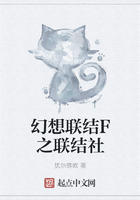The tide of travel began to set northward in April. Many English, many Americans appeared in Florence from Naples and Rome; many who had wintered in Florence went on to Venice and the towns of northern Italy, on their way to Switzerland and France and Germany.
The spring was cold and rainy, and the irresolute Italian railroads were interrupted by the floods. A tawny deluge rolled down from the mountains through the bed of the Arno, and kept the Florentine fire-department on the alert night and day. "It is a curious thing about this country," said Mr. Hinkle, encountering Baron Belsky on the Ponte Trinita, "that the only thing they ever have here for a fire company to put out is a freshet. If they had a real conflagration once, I reckon they would want to bring their life-preservers."
The Russian was looking down over the parapet at the boiling river. He lifted his head as if he had not heard the American, and stared at him a moment before he spoke. It is said that the railway to Rome is broken at Grossetto."
"Well, I'm not going to Rome," said Hinkle, easily. "Are you?"
"I was to meet a friend there; but he wrote to me that be was starting to Florence, and now"--"He's resting on the way? Well, he'll get here about as quick as he would in the ordinary course of travel. One good thing about Italy is, you don't want to hurry; if you did, you'd get left."
Belsky stared at him in the stupefaction to which the American humor commonly reduced him. "If he gets left on the Grossetto line, he can go back and come up by Orvieto, no?"
"He can, if he isn't in a hurry," Hinkle assented.
"It's a good way, if you've got time to burn."
Belsky did not attempt to explore the American's meaning. "Do you know," he asked, "whether Mrs. Lander and her young friend are still in Florence?
"I guess they are."
"It was said they were going to Venice for the summer."
"That's what the doctor advised for the old lady. But they don't start for a week or two yet."
"Oh!"
"Are you going to Miss Milray's, Sunday night? Last of the season, I believe."
Belsky seemed to recall himself from a distance.
"No--no," he said, and he moved away, forgetful of the ceremonious salutation which he commonly used at meeting and parting. Hinkle looked after him with the impression people have of a difference in the appearance and behavior of some one whose appearance and behavior do not particularly concern them.
The day that followed, Belsky haunted the hotel where Gregory was to arrive with his pupil, and where the pupil's family were waiting for them. That night, long after their belated train was due, they came; the pupil was with his father and mother, and Gregory was alone, when Belsky asked for him, the fourth or fifth time.
"You are not well," he said, as they shook bands. You are fevered!"
"I'm tired," said Gregory. "We've bad a bad time getting through."
"I come inconveniently! You have not dined, perhaps?"
"Yes, Yes. I've had dinner. Sit down. How have you been yourself?"
"Oh, always well." Belsky sat down, and the friends stared at each other. "I have strange news for you."
"For me?"
"You. She is here."
"She?"
Yes. The young girl of whom you told me. If I had not forbidden myself by my loyalty to you--if I had not said to myself every moment in her presence, 'No, it is for your friend alone that she is beautiful and good!'--But you will have nothing to reproach me in that regard."
"What do you mean?" demanded Gregory.
"I mean that Miss Claxon is in Florence, with her protectress, the rich Mrs. Lander. The most admired young lady in society, going everywhere, and everywhere courted and welcomed; the favorite of the fashionable Miss Milray. But why should this surprise you?"
"You said nothing about it in your letters. You"--"I was not sure it was she; you never told me her name. When I had divined the fact, I was so soon to see you, that I thought best to keep it till we met."
Gregory tried to speak, but he let Belsky go on.















